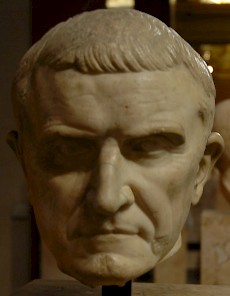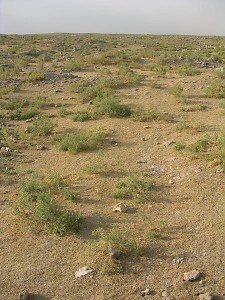Carrhae (53 BCE)
Q205887Harran (Akkadian Harrânu, "intersecting roads"; Latin Carrhae): ancient city in Mesopotamia, famous for a temple of the Moon god Sin and the defeat of the Roman general Crassus in 53 BCE ("battle of Carrhae").

At the plain east of Harran, the Roman general Crassus, one of the triumvirs, was defeated in 53 BCE by the Parthian general Surena, fighting for king Orodes II. He had prepared himself well, having secured his flank by concluding an alliance with king Artavasdes II of Armenia.
The land is not as dry as is sometimes supposed. Although this part of Mesopotamia is a steppe, there are rivers - Harran is situated in the valley of the Balikh - and agriculture is certainly possible. An army, even seven legions, could feed itself over here.
A summary from the History of Rome since the Foundation by the Roman historian Livy states:
Marcus Crassus crossed the river Euphrates, carried the war to the Parthian empire, and was defeated in a battle in which his son also fell. With the remains of his army, he occupied a hill, and was summoned to a conference by the enemy leader, Surena, as if to speak about a truce. However, he was captured and killed to avoid suffering the indignity of remaining alive.note

The story of the campaign is told in great detail by Plutarch, in his Life of Crassus.note The battle itself took part near the river, which may have been north of south of the city; after the defeat, the Romans went to Harran; leaving at night, they lost their way in the marshes (!); were forced to negotiate, and lost their general.
The main reason of the Parthian victory had nothing to do with treachery or a desert in which the Romans could not deploy their soldiers: those factors were invented to cover up that the Parthians had been superior in numbers and quality. They had better supply lines; dromedaries brought them hundreds of thousands of arrows. That settled the battle.
Crassus' death meant that of the once powerful triumvirate, only Pompey the Great and Julius Caesar remained. Now that there was no one to balance them, the two men were bound to fight a civil war, sooner or later.
Another consequence was that the Romans had to invade the east to avenge themselves. Mark Antony did this with mixed success; it was left to Tiberius to receive back the eagle standards, an event that was duly celebrated in the Roman propaganda.